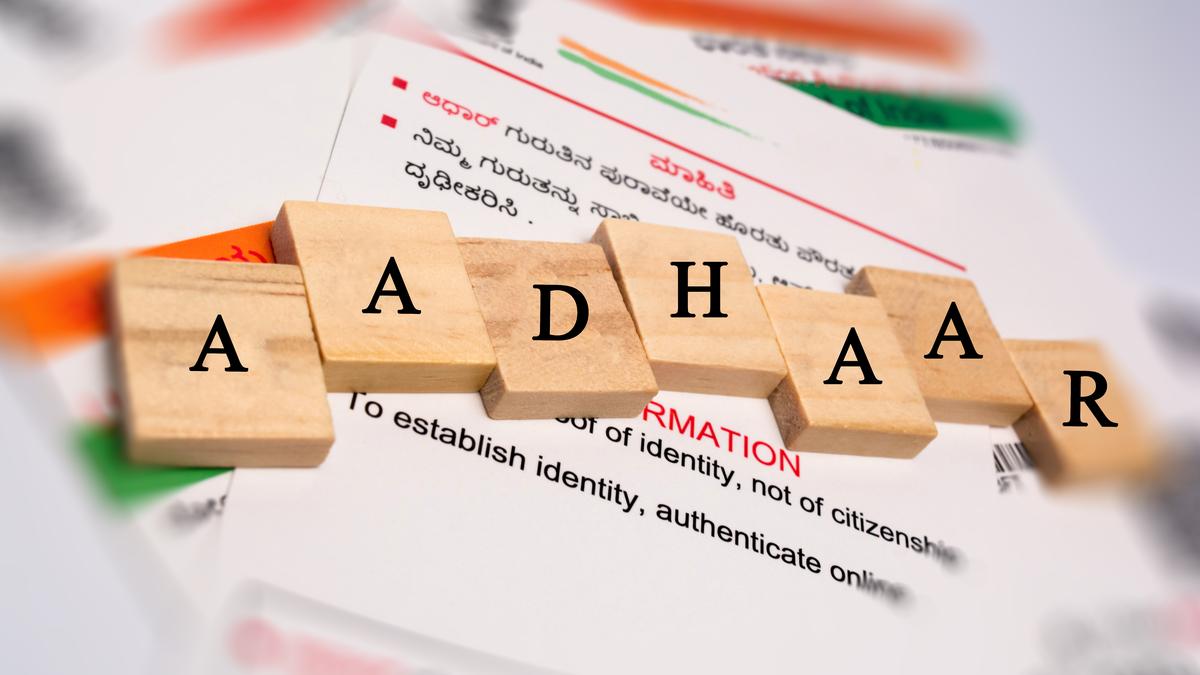Aadhaar is part of the right to vote statute, SC replies when faced with efforts to portray the unique identity as inferior
By Krishnadas Rajagopal
Copyright thehindu

The Supreme Court on Monday (September 15, 2025) said Aadhaar was part of the right to vote statute, and voters were permitted to utilise the unique identity proof to the extent permitted by the law.
A Bench of Justices Surya Kant and Joymalya Bagchi was responding to submissions intended to portray Aadhaar as inferior to 11 other documents listed by the Election Commission of India (ECI) for voter verification in the ongoing Special Intensive Revision (SIR) of the electoral rolls in Bihar.
The attack has come barely a week after the Court declared Aadhaar as the “12th document” aggrieved voters could attach in their claims and objections for inclusion in or exclusion from Bihar’s voter list.
Section 23(4) of the Representation of the People Act, 1950 permits ECI officials to use Aadhaar to authenticate entries in the electoral rolls.
Petitioner-advocate Ashwini Kumar Upadhyay, who wants the Court to rethink its August 8 order listing Aadhaar as the 12th document, said any person could get an Aadhaar, and that the individual need not necessarily be a citizen.
“Aadhaar is not proof of age, citizenship, residence, or domicile,” Mr. Upadhyay argued vehemently.
Justice Bagchi asked then what Aadhaar was meant to prove. Mr. Upadhyay said it was merely a “simple” proof of identity.
Referring to Section 23(4), Justice Bagchi asked whether Aadhaar was not part of the statute which governed the ECI with regard to the right to vote and inclusion in electoral rolls.
To this, Mr. Upadhyay argued that Aadhaar could not be equated with any of the other 11 documents.
“So, are you saying that a land record (one of the 11 documents) is more relevant than Aadhaar?” Justice Bagchi queried.
Mr. Upadhyay argued the SIR order of June 24 envisaged not only a proof of identity but also supporting evidence of eligibility, including place of birth or residence as per the 1950 Act. Consequently, acceptance of Aadhaar alone, without accompanying proof of place of birth or other eligibility criteria, diluted the intended scheme of the June 24 order. The Court issued notice on Mr. Upadhyay’s plea.
He also argued in favour of “pan-India” SIR to root out “foreign infiltrators” who had sneaked their way into the electoral rolls. “Bihar has lakhs of Bangladesh nationals and Rohingyas…” the petitioner-advocate submitted.
To this, Justice Surya Kant responded that the ECI knew the law, and could distinguish between citizens and infiltrators in the voter list.
Senior advocates A.M. Singhvi and Gopal Sankaranaraynan urged the Court to hear their petitions on the validity of the SIR exercise itself. They said the ECI was well into conducting SIRs in other parts of the country.
“We are watching this with great trepidation… A meeting of the ECI was held on September 10. It is crucial that this Court hears the case soon or SIR would soon become fait accompli,” Mr. Sankaranaraynan submitted.
“Why should I, as a citizen, suffer from the illegality of SIR?” advocate Vrinda Grover, also appearing for the petitioner’s side, asked.
“But how can we stop this? If other States file petitions, they are entitled to a hearing,” Justice Kant responded.
The Court fixed October 7 to hear arguments on the legality of the SIR. It assured that its judgment would prevail over anything that may happen.



